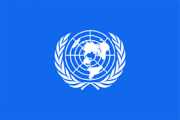Mr. Chairman,
Excellencies,
Distinguished Delegates,
I am honoured to speak on behalf of the Government of Jamaica in relation to Agenda item 3(a) on “poverty eradication.” In so doing, my delegation aligns itself to the statement made by Algeria on by the representative of Algeria on behalf of the Group of 77 and China, and by Haiti on behalf of the Member States of the Caribbean Community (CARICOM). Notwithstanding our endorsement of these statements, I take this opportunity to make a few remarks in a national capacity.
Mr Chairman,
At the outset, let me thank the Secretary General for his comprehensive report, and state our concurrence with his recommendation that in order to address patterns of social and economic inequality and discrimination, countries must ensure that poor people have access to land, housing, credit and other productive resources, and that all segments of society should participate in decision making processes.
In the context of our poverty eradication agenda, Jamaica along with other developing countries must make critical decisions relating to the continued development of our peoples. Unemployment and poverty, including the lack of access to adequate education and basic social services, are still among the major contributors to social exclusion and disharmony in society. These factors create debilitating effects on the national development agenda. Jamaica shares the view that sustained, inclusive and equitable growth as well as job creation must be given priority attention if the Millennium Development Goals (MDGs) and social integration goals agreed on in the Copenhagen Declaration and Programme of Action are to be realised.
Mr Chairman,
Since 2000, Jamaica has completed a review of its social protection programme and has begun the reform of the social security systems to ensure full participation and the creation of equity within the context of our sustainable development. As part of this reform, the Government introduced a Conditional Cash Transfer (CCT) programme to provide income support to poor and vulnerable families, of which over 60 percent are single female headed households. The Programme of Advancement Through Health and Education (PATH) provides direct benefits to approximately 130,000 households or 80 percent of families living below the national poverty line.
A life cycle approach to development was employed in the delivery of benefits which allowed support to be directed to children in infancy (0 – 6 years), children in the educational system, pregnant and lactating women, the elderly and the disabled. Since 2008, PATH has expanded considerably and now represents approximately 0.02 percent of GDP. Additionally, due to the direct link between nutrition and learning, the Government has provided a free meal to all students supported under PATH in State managed educational institutions.
Mr. Chairman,
In crafting a holistic social protection strategy, the Government also introduced a proxy means test which established a mechanism for identifying the poor and vulnerable in our society. This created an opportunity for specialised and directed support to be delivered with the objective of breaking the intergeneration poverty cycle. To date, the revised social protection strategy has seen quantifiable impacts in the Health and Education sectors, with students receiving the CCT attending school at least 3 percent more than students in similar households who are not accessing the programme. Additionally, an impact evaluation revealed that families with infants below 6 years attend health clinics 38 percent more frequently than those who are not recipients of the programme.
Jamaica remains committed to its international, regional and domestic obligations under the various social protection mechanisms, including the ILO Convention on core labour standards, such as the Conventions on the “Minimum age of Employment” and the “Elimination of the Worst Forms of Child Labour. As such, the decent work agenda is critical to the development of our poverty eradication programme. Furthermore, we believe that a welfare to work agenda is critical to advancing the agenda of poverty eradication.
In 2008, the Government approved the piloting of a welfare to work programme for working age members within households benefiting from PATH, over a two-year period. An evaluation of the pilot programme found that persons in poor households were far more resilient after receiving labour activation support through the welfare to work strategy. Consequently, in the interest of bolstering our poverty eradication programme, the Government has decided to mainstream the welfare to work programme into PATH households in an effort to ensure their full participation in the labour market.


